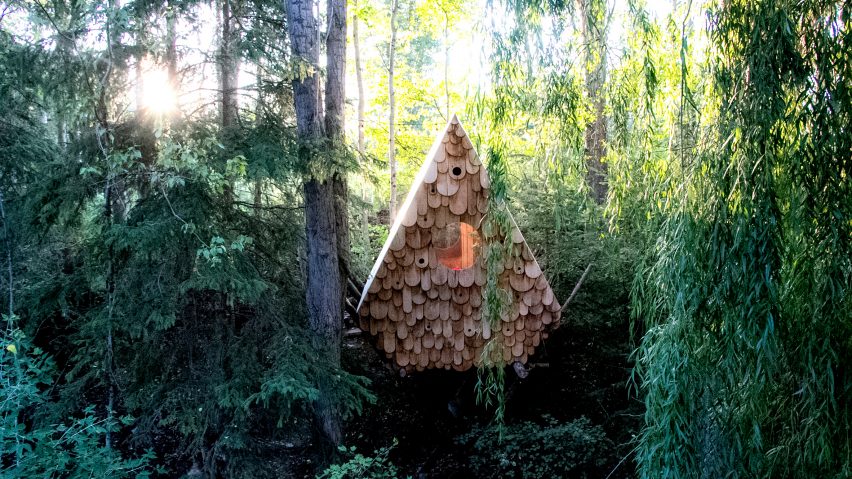
Birds and humans share wooden treehouse in western Canada by Studio North
In a mountainous valley in British Columbia, design-build firm Studio North has created an elevated A-frame dwelling that is meant to be used by campers and birds.
The Birdhut is situated on a forested slope in Windermere, a small village in western Canada's Columbia Valley. The pointy structure is lifted nine feet (2.7 metres) off the ground by wooden stilts and rises to a height of 20 feet (six metres), enabling it to blend in with the trees.
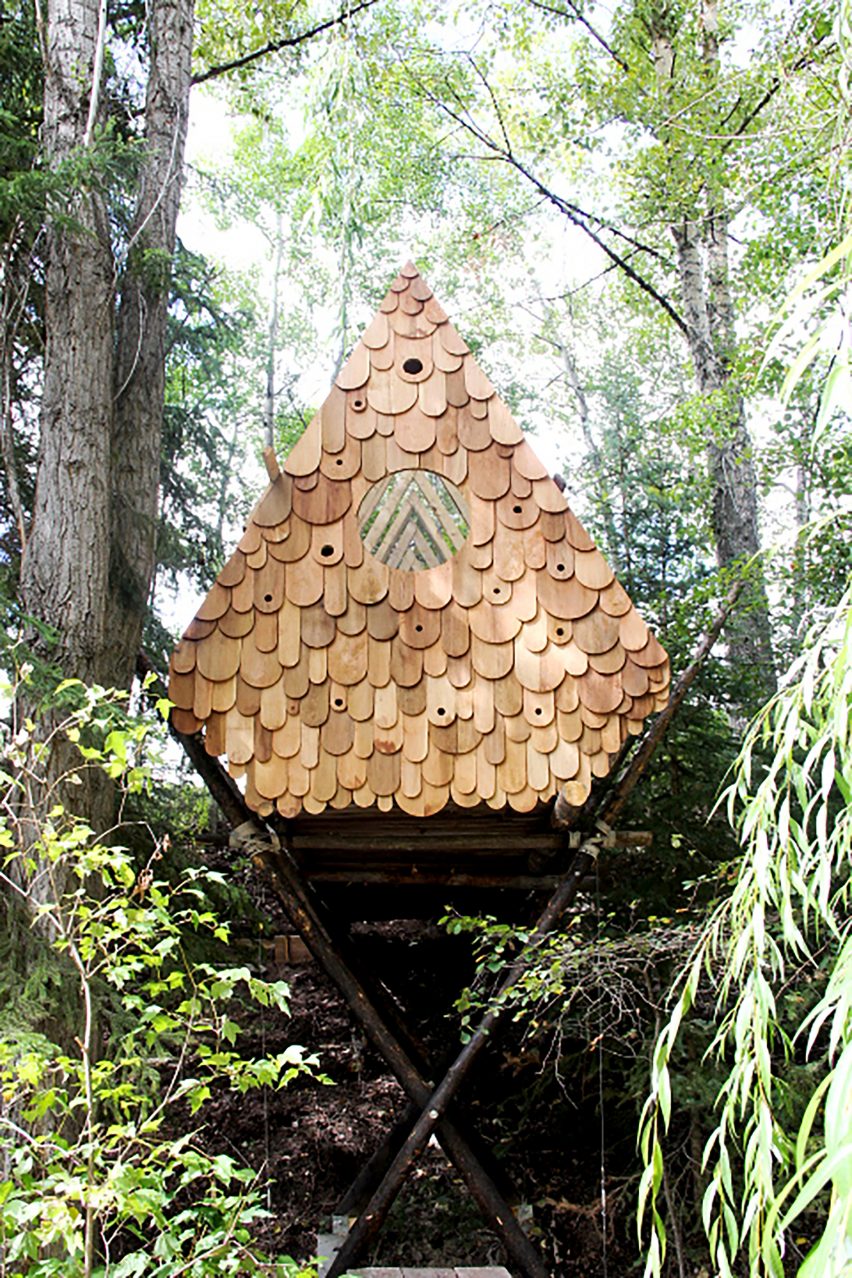
Encompassing 100 square feet (9.2 square metres), the tree house is designed to house two people, 12 species of birds and other "inquisitive critters that come by to visit".
"In addition to being an inviting place for people to nest, the whimsical facade has twelve birdhouses, each designed for various local birds that live in the mountains of the Columbia Valley," said Calgary-based Studio North.
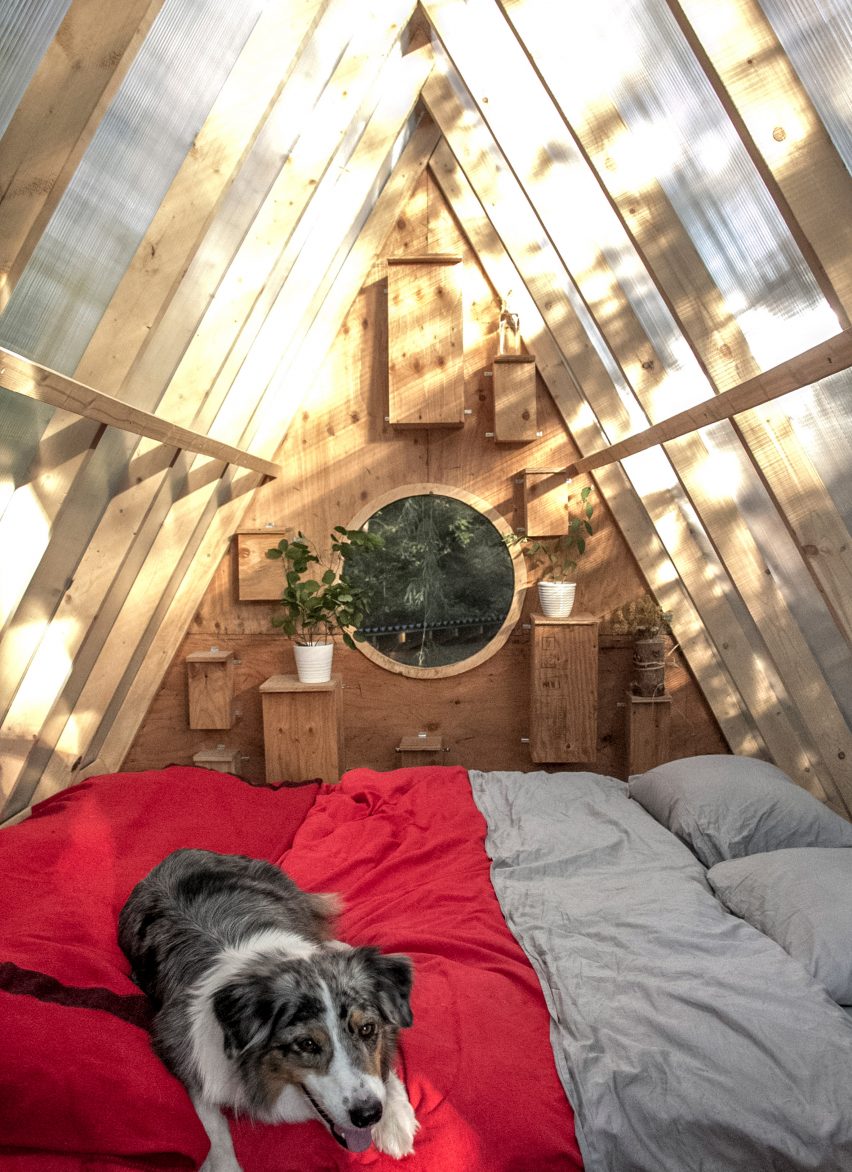
The front elevation is clad in custom-cut shingles made of western red cedar, with several featuring circular openings for birds. The cavities range in size in order to accommodate a wide variety of birds, from large pileated woodpeckers to petite warblers.
The height of the holes responds to birds' varying nesting habits. Some prefer to be closer to the ground, while others seek out spaces high up in the trees.
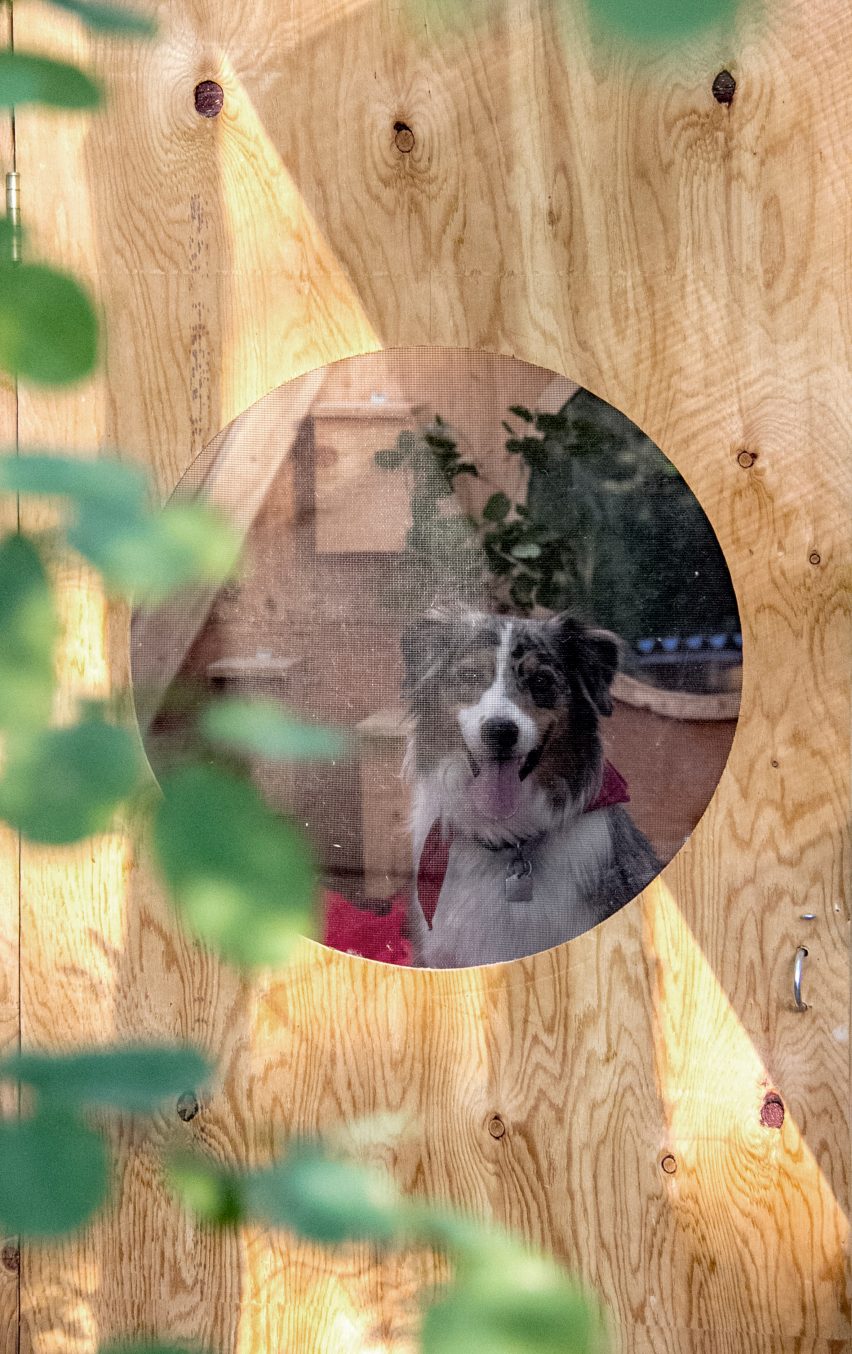
"The materials, form, and orientation of the Birdhut were designed to offer nesting opportunities for as wide a variety of local birds as possible," the team said.
The X-shaped stilts that hold up the structure are made of sturdy lodgepole pine logs, which were foraged from an area ravaged by fire. To fabricate the hut's platform and cladding, the team used planks reclaimed from an old cabin deck.
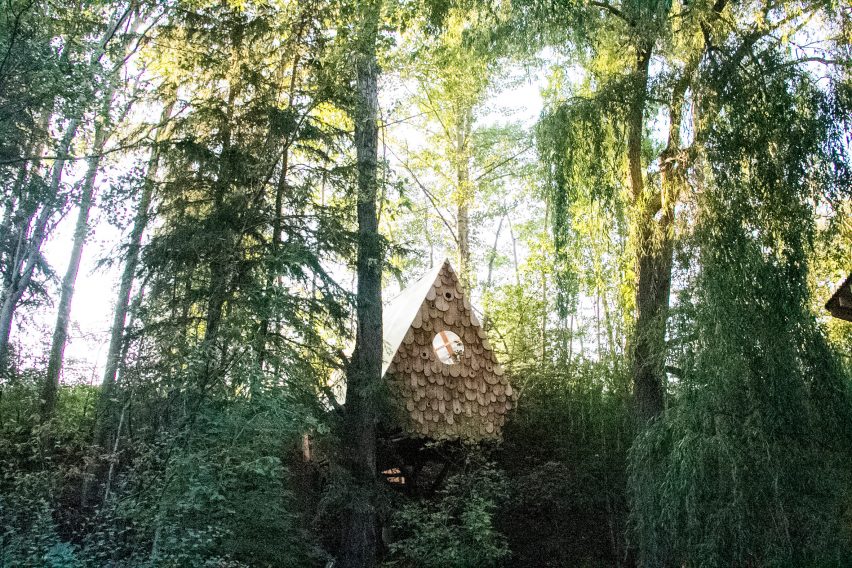
"Mimicking the process of a bird building a nest, the materials of the Birdhut were scavenged from the immediate surroundings," the studio said.
Polycarbonate sheets were used for the side walls of the A-frame structure. Two oculi on the front and back facades bring in natural light and air.
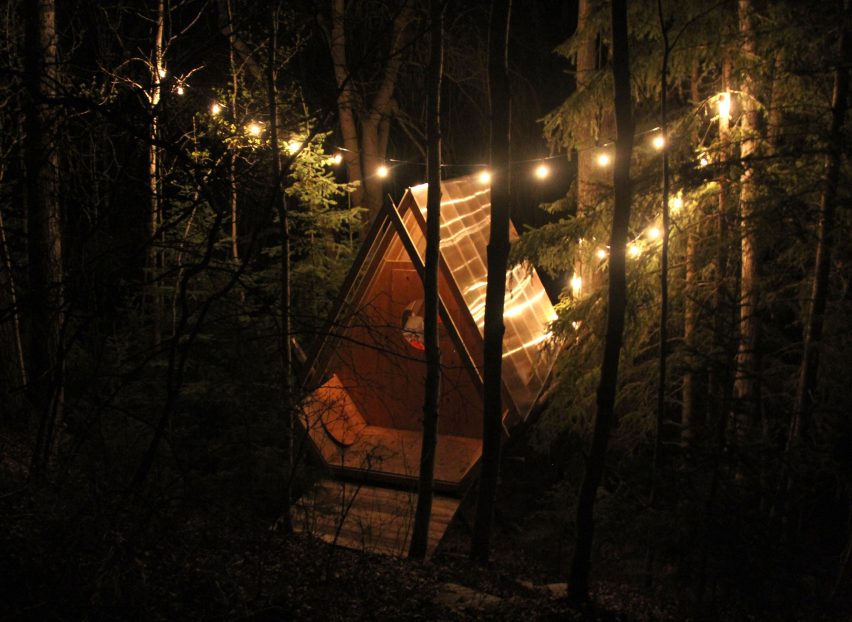
"To give a sense of being in the canopy of the trees, the roof of the Birdhut disappears with clear, eight-millimetre polycarbonate panels," said Studio North. "As a result, the space is passively heated by the sun, acting as a kind of greenhouse that is passively ventilated by the two circle windows."
A bridge connects the hut to the hillside, where a stone path leads down to a campfire and a natural spring.
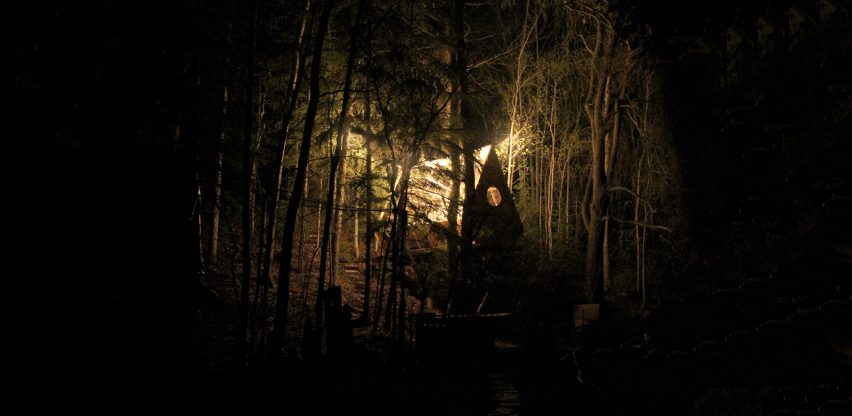
Treehouses have long been popular with campers wanting to get the most from the great outdoors. They vary in size from tiny huts in the canopy to palatial villas surrounded by the forest.